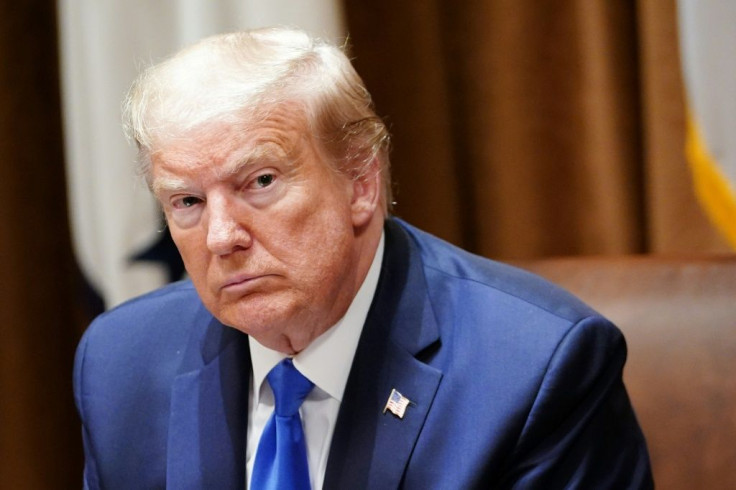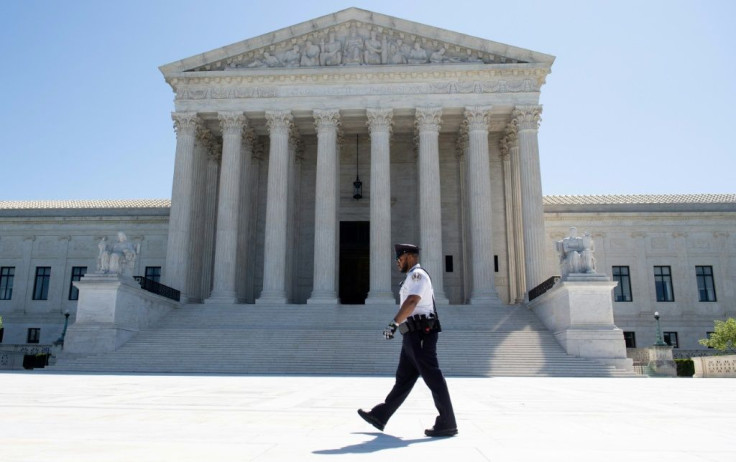US Supreme Court Debates Demands For Trump's Tax Records

President Donald Trump's claim of a near absolute right to keep his finances secret rose to the Supreme Court on Tuesday, the culmination of a years-long showdown over the balance of power in the US government.
The president has not released his tax returns despite promising during the 2016 election to do so, bucking a voluntary tradition upheld by every US leader since Richard Nixon in the 1970s.
His finances are the target of congressional investigations by democrats looking into the president, the Trump Organization and his family in what started as a probe into foreign influence in 2016.
Meanwhile New York prosecutor Cyrus Vance, a Democrat, is looking into whether Trump broke the law over hush money payments to a porn star and a former Playboy model who say they slept with Trump.
Observers say the court's decision over whether to compel the release of his finances could have profound long-term implications for lawmakers' ability to scrutinize presidents.
Trump's lawyers have argued in lower courts that he enjoys complete immunity while in office.
But liberal Justice Elena Kagan told the president's legal team it was a "fundamental precept of our constitutional order that the president is not above the law."
The president's defenders say the investigations are politically driven and amount to harassment, interfering in his ability to lead.
"It is no secret that the relationship between the House of Representatives and the president is frayed, but this is not the first nor the last time that one house of Congress will be at odds with the president," said Trump attorney Patrick Strawbridge.

"The rule the court applies here will affect not only this president, but the presidency itself," he warned.
Presidents are not required by law to release details of their private finances.
But the nine justices -- two picked by Trump, three by previous Republican presidents and four by Democrats -- acknowledged that the president had bucked tradition.

"We have never had to address this issue and the reason is because Congress and the president have reached accommodations with each other," Kagan, one of the court's liberals, told Strawbridge.
"What you are asking us to do is to put (a) kind of 10-tonne weight on the scales between the president and Congress," she said.
Trump's secrecy over his tax returns has prompted speculation about the former real-estate magnate's true worth and his possible financial entanglements.
Congressional investigations have raised questions about whether he has sensitive financial exposure to Russia, and also whether he has used questionable accounting loopholes to avoid paying taxes in the 1990s and 2000s.
In both the New York and congressional cases, subpoenas were issued to Mazars, Trump's longtime accounting firm, as well as to Deutsche Bank and Capital One bank demanding his financial records for 2011-2018.
The Supreme Court heard repeated reference to the Watergate scandal of the early 1970s, in which Nixon refused to comply with a congressional subpoena, and president Bill Clinton's immunity claim when Paula Jones sued him in the 1990s for sexual harassment.
In both cases the court ruled against absolute immunity for the president.
Trump's lawyers argued that neither ruling applied, saying the congressional and New York subpoenas demonstrated no clear need for the president's financial records.
"These subpoenas fail every hallmark of a legitimate congressional investigation," Strawbridge said.
He added that they impinged on Trump's ability to carry out the duties of his office. "Unlike Congress, the president is never in recess," he quipped.
But the lawyer for Congress, Douglas Letter, argued there was a clear need for the documents.
"There is an obvious need to focus on the president's financial records to determine if the president is subject to foreign leverage. It's obvious that ties in with a legislative purpose," Letter said.
He also said the case before the Supreme Court was very specific and did not require a decision that would shift the balance of power in governance.
© Copyright AFP {{Year}}. All rights reserved.





















